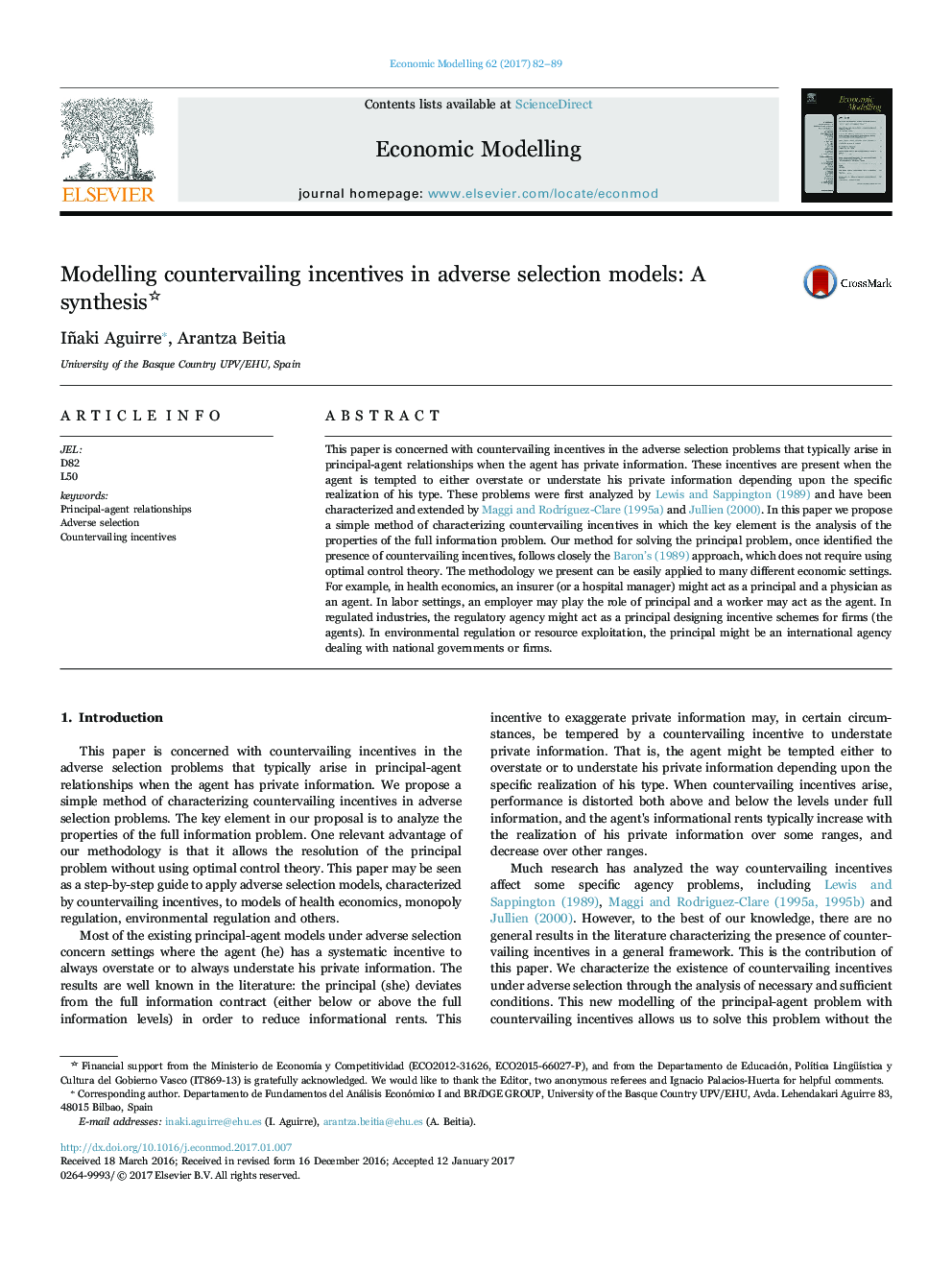| کد مقاله | کد نشریه | سال انتشار | مقاله انگلیسی | نسخه تمام متن |
|---|---|---|---|---|
| 5053258 | 1476507 | 2017 | 8 صفحه PDF | دانلود رایگان |
عنوان انگلیسی مقاله ISI
Modelling countervailing incentives in adverse selection models: A synthesis
ترجمه فارسی عنوان
مدل سازی انگیزه های مقابله ای در مدل های نامطلوب انتخاب: یک سنتز
دانلود مقاله + سفارش ترجمه
دانلود مقاله ISI انگلیسی
رایگان برای ایرانیان
کلمات کلیدی
موضوعات مرتبط
علوم انسانی و اجتماعی
اقتصاد، اقتصادسنجی و امور مالی
اقتصاد و اقتصادسنجی
چکیده انگلیسی
This paper is concerned with countervailing incentives in the adverse selection problems that typically arise in principal-agent relationships when the agent has private information. These incentives are present when the agent is tempted to either overstate or understate his private information depending upon the specific realization of his type. These problems were first analyzed by Lewis and Sappington (1989) and have been characterized and extended by Maggi and RodrÃguez-Clare (1995a) and Jullien (2000). In this paper we propose a simple method of characterizing countervailing incentives in which the key element is the analysis of the properties of the full information problem. Our method for solving the principal problem, once identified the presence of countervailing incentives, follows closely the Baron's (1989) approach, which does not require using optimal control theory. The methodology we present can be easily applied to many different economic settings. For example, in health economics, an insurer (or a hospital manager) might act as a principal and a physician as an agent. In labor settings, an employer may play the role of principal and a worker may act as the agent. In regulated industries, the regulatory agency might act as a principal designing incentive schemes for firms (the agents). In environmental regulation or resource exploitation, the principal might be an international agency dealing with national governments or firms.
ناشر
Database: Elsevier - ScienceDirect (ساینس دایرکت)
Journal: Economic Modelling - Volume 62, April 2017, Pages 82-89
Journal: Economic Modelling - Volume 62, April 2017, Pages 82-89
نویسندگان
Iñaki Aguirre, Arantza Beitia,
